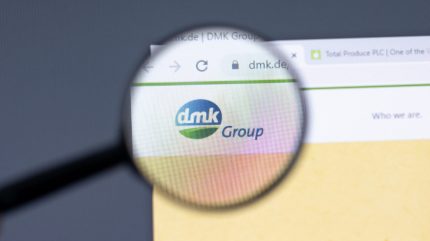
DMK, the Germany-based dairy major, is to continue its production in Russia.
The company, Germany’s largest dairy company, has two factories in the country, both producing cheese.

Discover B2B Marketing That Performs
Combine business intelligence and editorial excellence to reach engaged professionals across 36 leading media platforms.
A spokesperson said: “We are looking at a political tragedy from which the civilian population is suffering, both in Ukraine and in Russia. DMK produces food locally for the people in Russia. The current development, which is also tragic from our point of view, does not change these general conditions – at least for the time being.”
In 2020, the most recent year for which DMK has published financial results, the company generated revenue of EUR5.6bn.
Six years ago, DMK acquired a 60% stake in RichArt, a cheese company based in Bobrov in the Voronezh region of southern Russia. DMK bought the rest of the shares in 2018. The company opened its second production facility in Bobrov last year.
The spokesperson added: “Our products stand for basic nutrition, with which we can and want to help and feed people. With the same motivation, we have started aid deliveries and are planning to start more, which will go directly to local organisations via our office in Poland and will help to feed the refugees arriving there.

US Tariffs are shifting - will you react or anticipate?
Don’t let policy changes catch you off guard. Stay proactive with real-time data and expert analysis.
By GlobalData“Questions about possible further developments can only lead to speculation under the current circumstances. We ask for your understanding that we do not want to and cannot participate in such speculations.
“As an internationally active cooperative with people from over 50 nations, our deepest sympathy goes first and foremost to all the people who are suffering as a result of this conflict, irrespective of any economic considerations.”
Among the world’s major dairy companies, Lactalis has continued to manufacture and sell products in Russia. According to the website of Lactalis’ local subsidiary, the French group employs more than 1,500 staff in the country. It has four factories, producing a range of products from cheese to UHT milk and yogurt.
Danone this week said it would “suspend” investment in the country but continue to manufacture and distribute products locally.
Speaking to The Financial Times, Danone CEO Antoine de Saint-Affrique said: “It is very easy to get drawn into black-and-white thinking and demagogic positions but, in the end, our reputation is about our behaviour.
“We have a responsibility to the people we feed, the farmers who provide us with milk, and the tens of thousands of people who depend on us.”
On Monday (7 March), Arla Foods said it had “initiated preparations to suspend its business in Russia”, a move that would “cover both its local operations and imports”.
Fonterra, meanwhile, has halted exports to Russia, with the company’s units in the country still open, as the New Zealand dairy group weighs up the impact of the economic sanctions hitting the country.
Finland-based Valio, which has a production facility near Moscow, has quit Russia. “We strongly condemn Russia’s invasion of independent Ukraine,” Valio president and CEO Annikka Hurme said in a statement on Monday. “Valio does not have the ethical pre-conditions to continue operating in Russia, and we will therefore close down our operations in Russia.”



